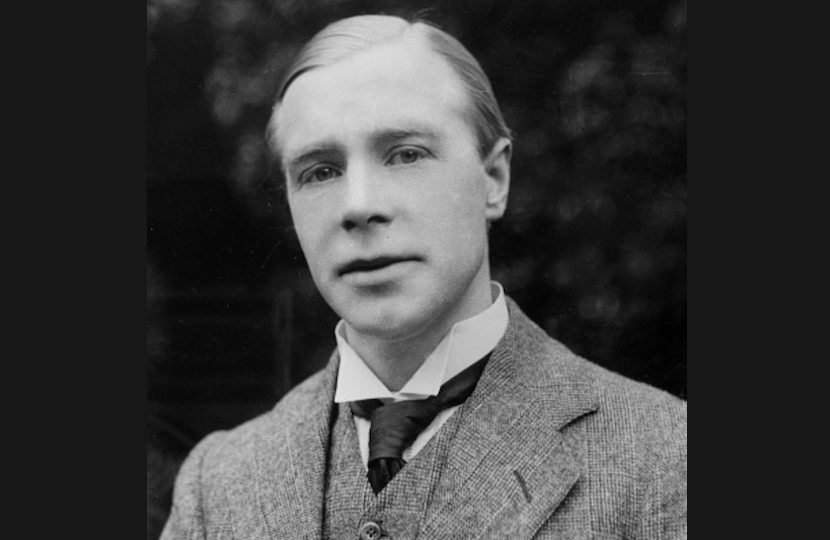
No one knows why or how Victor Grayson, briefly an extreme left-wing MP, disappeared without trace in 1920. The unsolved mystery has now been turned into a novel. Alistair Lexden reviewed it in Parliament’s magazine The House on 22 April.
Green Ink
By Stephen May
Published by Swift Press
Victor Grayson, who is the subject of this book, was the Lord Lucan of his day, though he possessed an infinitely more intriguing character than the rather dim Earl with a title made famous by the Crimean War, who scraped a living at the gambling table until he disappeared to avoid questioning about the murder of his children’s nanny and an attack on his wife in November 1974.
Grayson, who vanished just as completely in September 1920, was a gambler too in a variety of different ways, which required greater resourcefulness than Lucan ever possessed.
Unlike Lucan he had an hour of glory. His two great assets in life, which began in the Liverpool slums, were a handsome figure and a silver tongue. He used them to dramatic effect at the age of 25 to capture the safe Liberal seat of Colne Valley in Yorkshire at a sensational by-election in 1907, standing as a revolutionary socialist without any formal party organisation behind him.
Lenin, the Bolshevik leader, watching from his Swiss exile, was unimpressed by this victory for left-wing extremism. Grayson, he said, was a man “without any principles who was given to mere phrases.” He was right. Grayson was a remarkable mob orator who never attempted to develop a serious political programme which would advance the cause of socialism.
In Parliament he made enemies everywhere, particularly among the group of Britain’s first Labour MPs, who hated his extremism.They rejoiced when he was defeated at the next general election in 1910. Later they ensured that he would never be an MP again by securing evidence of his homosexuality. The Labour leadership acquired some of his love letters to another young socialist, describing graphically their “devouring passion” for each other.
After losing his seat and discarding his socialist rhetoric, Grayson did not fade from the public eye. He served for a time on the Western Front in a New Zealand regiment before establishing himself in some style, though without visible means of support, near Piccadilly. Some who have studied his disappearance argue that he became involved in the sale of honours with the sinister gay Maundy Gregory. This seems unlikely since he publicly denounced Lloyd George’s notorious money-making ventures in an attempt to revive his political career.
Stephen May, author of six previous novels, has now brought his lively imagination to bear on the unsolved mystery of Victor Grayson’s disappearance 105 years ago when he was 39. He focuses on the day towards the end of September 1920 when Grayson vanished, drawing in key features of his earlier misspent life to fill out the story.
May depicts a debauched life of sex and drink, which the few surviving facts from 1920 support. He also provides a cast of enemies, headed by Lloyd George, who appears here at his most unscrupulous. May’s rasping, brittle prose is often unattractive, but it helps convey the debased standards which, he insists, were prevalent everywhere after the First World War.
Grayson is given a suitably sordid , far-fetched end. Summoned by a message in green ink from a corrupt special branch official, he is shot accidentally by a woman dressed in her brother’s military uniform, and then dumped in the Thames at a place “where it will make a properly weighted body vanish.” Those involved do not show the slightest remorse.
It is hard to grieve for the loss of Victor Grayson. Some within the Labour Party have over the years revered him as a lost leader, who could have added greatly to its strength. In reality he was a complete charlatan. The facts about his life which Stephen May weaves into his fiction leave little doubt about that.

